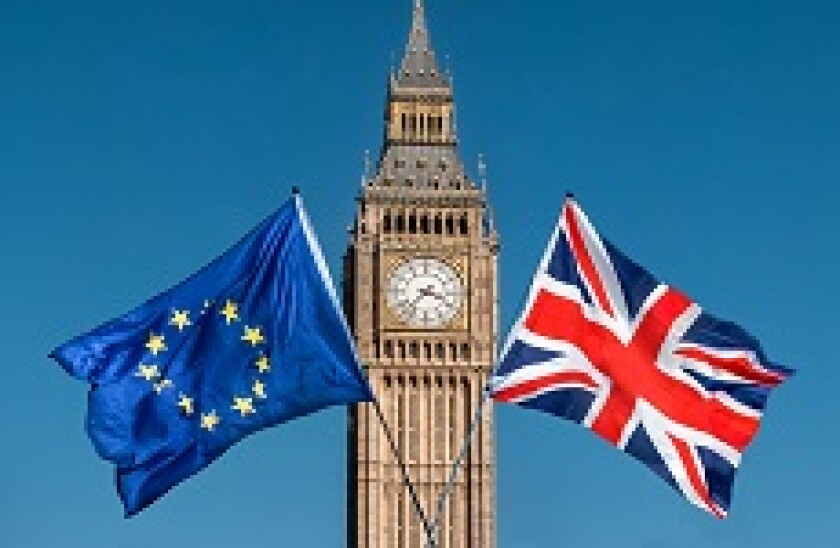This is initially confusing, given the UK’s financial services minister John Glen said this week that he was hopeful of a deal between the EU and UK on financial services being finalised “imminently”.
The reason for the talk is that both sides seem closer to finalising some sort of agreement for the UK’s exit next March, the withdrawal agreement.
Most of the negotiations for the departure have revolved around both sides finding a solution to the Irish border conundrum, rather than constructing a framework for financial services.
Assuming talk of a deal on the withdrawal agreement is accurate and the UK government can get parliamentary approval for that agreement, negotiations on a future relationship will start.
These will likely be initially based on a political declaration within the withdrawal agreement laying out the desired outcome for a future relationship between the UK and EU, which will likely include some language on financial services.
For more details on the minutiae of the political declaration and its importance within the withdrawal deal, a recent piece by the think tank the Centre for European Reform is worth a read.
Essentially though, unless the UK and EU surprise observers with a substantive and detailed declaration on the future relationship, the “deal” being muted on financial services will likely be included in general warm and non-specific language on both sides wanting a closer relationship than with any other trading partner and a general commitment to continental stability.
On financial services, this will include the recognition that EU and UK financial services firms will be able to continue to have some access each other’s markets under the regulatory equivalence framework which the EU already has with third countries, like the US.
There may be some positive language about seeking a deeper equivalence regime than the EU offers to other trading partners, like the enhanced equivalence regime laid out in the Chequers framework.
The language could say that both sides respect the other’s regulatory autonomy to grant equivalence and it may even see to apply equivalence to whole industries rather than specific subsectors.
Political pieties, however, are not hard regulatory progress — and it's more than likely that the political declaration will kick the can down the road again past next March and into the transition period.
A nod to equivalence is really nothing more than a recognition of the minimum requirement for both the EU and UK financial services.
The UK and EU will continue to need access to each other’s financial markets and given the regulatory homogeneity between the two already exists, it is a natural starting point for discussions.
But equivalence is the likely starting point for both the EU and UK even if no final withdrawal deal is struck.
Starting point, yes, but it should not be the final result of negotiations. At the very minimum, the industry needs what's being call "enhanced equivalence" — a concept which does not yet exist in EU law, and which will likely need extensive negotiating.
If in these negotiations it begins to resemble “mutual recognition”, the original Brexit proposal the City was hoping for, then some EU states will likely kick up a fuss.
France in particular was openly hostile to discussions of any kind of trade deal that included carve-outs for financial services.
Once the UK has left the EU, then the real discussions over a future relationship will begin and that will include financial services. That means all is still to play for and the City should continue to make the case for as close a relationship as possible between the UK and EU.
Whether this be through a bespoke trade deal, which includes financials services, or even continued membership of the EEA as part the European Free Trade Association, the City must push its interests and the interests of UK financial services.
That may be optimistic, but UK ministers are being disingenuous when they say they're close to a deal now. The fight will continue into the transition period — there's no real agreement waiting to be unveiled now.

